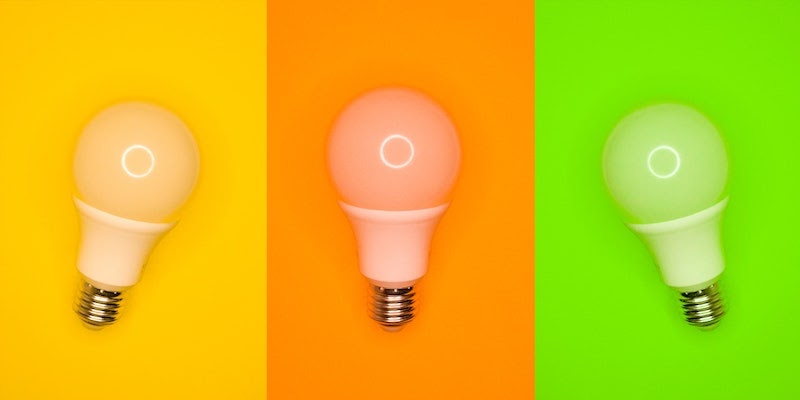Glasses are glasses, right? Not always.
When it comes to computer glasses vs reading glasses, they are very similar. In fact, some people use reading glasses as computer glasses. The primary difference comes down to how far away the object is from your eyes.
The other difference is that computer glasses often come with a tint or a special coating that helps filter irritating light that comes from computer screens.
Let’s quickly summarize the different types of glasses you might wear for using a computer, reading, and regular activities.
- Computer glasses: Use for lit digital screens, an average of 24 inches from your eyes
- Reading glasses: Use for reading printed books or documents, held an average of 15 inches from your eyes
- Regular glasses: Use for general vision correction; in single vision or bifocal / progressive based on prescription
- FL-41 glasses: Use for protection against harmful light, or to reduce light sensitivity or migraine
A note about FL-41 glasses. While many people wouldn’t know these under the name of “computer glasses,” the special tint they are coated with helps to filter out the blue light from digital screens. At Axon Optics, our glasses come with something better than FL-41 — Avulux® lenses that absorb up to 97% of the most harmful blue, amber, and red light. This is particularly important for people who are sensitive to bright light (a condition called photophobia) or migraine.
Keep reading to learn why this protection could be important.
Computer Glasses: Reduce eye strain and lessen screen glare
When you work on your computer, do you feel eye strain, pinching between the nose, pressure on your temples, or headaches? If so, you may benefit from computer glasses. There are a couple contributing factors to these symptoms:
Factor 1 | Eye strain: First, your eyes could be working too hard to stare at a set distance for long periods of time. You may need some magnification to make things easier and avoid eye strain. Computer glasses are a dedicated pair of glasses with a magnification power. The magnification is designed to relieve eye strain while looking at an object that is about the distance of your computer screen, about 24 inches. They relieve the muscle tension inside the eye, and keep the muscles outside the eye from having to overwork, which may cause them to tire from staring at the same close distance for so long.
Dr. Joseph Allen of the Buffalo Eye Clinic says, “I like to
compare this to lifting weights. Our eyes aren’t really meant to hold our
With the right magnification, your eyes won’t have to work so hard to see what you’re working on.
Factor 2 | Irritating light: Second, the blue light generated by the screen may make your eyes work harder to see contrast, which can be very hard on them.
Overexposure to blue light may lead to migraines, headaches, watery eyes, and other discomforts. A coating or tint that helps filter out the blue light can be added to any kind of lens. Often called blue light glasses, these are designed to reduce eye strain from blue light.
However, blue light glasses are not necessarily computer glasses. While you could order your computer glasses with or without anti-blue-light coating, the right magnification is what computer glasses are all about.
Readers: Bringing small print into full focus

Computer Glasses vs Reading Glasses: Two different scenarios
Most people need a different level of magnification for close-up reading than for using a computer, which is usually set further back. Using the wrong pair of glasses for your situation could actually add to eye strain.
- Use computer glasses when using a digital screen which is around 24 inches away from your eyes. You may choose to use computer glasses that have blue-light filtering.
- Use reading glasses when reading books or printed documents, which are usually held much closer, about 15 inches. You won’t need the blue light filtering if this is how you read.
A Word of Caution About Blue Light Glasses
Blue light glasses are often part of this conversation because both reading glasses and computer glasses might have the blue blocker coating added as an option, if you like. However, you can also buy blue blockers that have no magnification at all. You might use these when you can see your TV or computer just fine, but simply want to reduce your blue light exposure.
Because the blue light generated by computer monitors and other digital screens can be hard on your eyes, prolonged exposure can lead to symptoms like dry eyes, blurred vision, headaches, and sleep disruptions.
The blue light glasses often used to lessen exposure to blue light are not the same as the Avulux lens, which is a patented, multi-band precision optical filter clinically proven for people with migraine and light sensitivity.
Blue blockers are designed for anyone who may experience eye strain after looking at LED screens on tablets, smartphones, and other electronic devices — not necessarily for light sensitive people. And as you’ll read in this article, recent study raises questions about their effectiveness.
If you have light sensitivity or want to filter out harmful light with or without a vision prescription, Axon Optics glasses with Avulux lenses may be of help. In fact, they've been formulated and independently proven to help people with migraine manage the impact of light.
Axon Optics glasses with Avulux precision tinted lenses are very different from blue light blockers, and are more effective at blocking harmful light. This is because they specifically block blue, amber, and red light, which are actually shown to be the harmful kinds. This may be why these lenses are so effective for people with light sensitivity and migraine.
Even people who are not light sensitive will probably get more relief from these lenses than most blue blocker computer glasses.
Computer Glasses and Readers: Which do You Need?
As you can see, deciding which type of glasses are best for you isn’t always an easy task. Take the quiz below to help you decide if you need computer glasses or reading glasses.
At Axon, we have a wide selection of glasses with Avulux lenses designed to help people manage the impact of light on their lives. Choose from prescription or non-prescription lenses.
References
Source: Katz B, Digre K. Diagnosis, Pathophysiology and Treatment of Photophobia. Survey of Ophthalmology.
2016.02.001
www.surveyophthalmol.com/article/S0039-6257(15)30007-2/abstract
Source: S. Singh, L.E. Downie, A.J. Anderson. Do Blue Blocking Lenses Reduce Eye Strain From Extended
Screen Time? A Double-Masked, Randomized Controlled Trial. American Journal of Ophthalmology. February 11, 2021





